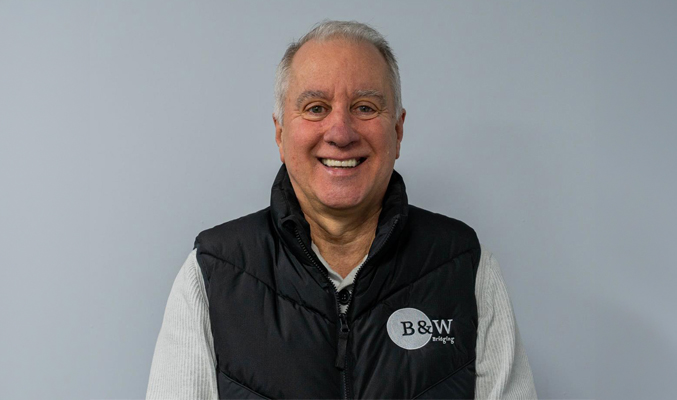‘You need to look after yourself so you can look after others’
By Tony Sanchez

In our latest Women in Finance Interview, Tony Sanchez speaks to Dena Thompson, Head of Credit & Risk at bridging lender Tuscan Capital.
Dena has overall responsibility for the swift underwriting and efficient credit management of Tuscan Capital’s bridging loans – from their origination through to final redemption.
She has more than 18 years’ lending experience across a range of funding institutions but has concentrated her expertise in the bridging sector for the last 11 of these.
Before joining Tuscan Capital, Dena was director of credit at real estate development lender Urban Exposure. Prior to this, she held senior underwriting and credit positions at Alternative Bridging Corporation and Fortwell Capital.
When not having fun hosting family and friends at home, or cheering on her young children in their various frenetic activities, Dena likes to kick back with a large G&T in the company of a good film or book.
What brought you into financial services?
When I chose not to go to university, I had to think what the next thing was I would need in my adult life.
I realised I would need to buy a house, and so I decided I should learn how it all worked and got a job in the post room at Abbey for Intermediaries and worked my way up.
What do you think makes a successful leader? And in particular women leaders?
I have been fortunate enough to work with some great people (not just leaders) and those that stood out were the ones that are truly comfortable in their own skins and really know who they are.
They would talk the same way to a CEO or the office junior. They neither shy away or exert their authority – they just stand up for what they believe to be the right course of action in a considered way.
What are the biggest barriers you have faced in your career in financial services?
Years ago, women of a certain age were not truly invested in as there was a perceived risk that they would just need a career break (or two, or three!).
They would not be moved into more senior roles or be given training and you didn’t want to rock the boat so to speak as the industry was also rife with redundancies – There was an underlying feeling that you were lucky to still have a job.
Fortunately, the world has moved on in many ways
If you could tell your younger self one thing you know about business now, what would it be?
To invest in yourself rather than waiting for someone to notice your potential.
If you want to do a course, ask your employer to sponsor you or just take it yourself. You will stand still if you stop learning.
What’s your own personal mantra?
You need to look after yourself so you can look after others.
What do you think is key for finding a successful work-life balance?
This is a person specific question rather than generic as everyone’s ideal balance can differ greatly.
If you feel that you are giving your best to both your home and work life, then you are pretty close.
Being in credit, you get quite good at mitigating the risks, but also to adapt to change and growth – Do your own risk assessment on where need you the most at that specific time, that’s balance.
What’s one key leadership lesson you’ve learned along the way?
To ask myself……. would I want to work for a boss like myself?
Do I have the traits of that boss I loved working with?
Would my team recommend someone join our team? If not, then it is time to reassess.
What advice do you have for women aiming for leadership positions?
Don’t be afraid to employ people with a stronger skill set to yourself. As Ray Dalio said, employ for the business not your ego.
It doesn’t show you as less competent, actually the opposite in allowing you the time to do your role and work on your strengths.
What do you think is holding women back?
Thinking that we need to do it all or have it all. We don’t need to work like we don’t have children or aging parents, or parent like we don’t have jobs.
You need to take time to surround yourself with a great support network (be that family, friends, paid help, a good employer – whatever your circumstances need) and then not be afraid to call on them when needed.
Do you think there is still a glass ceiling?
I think it is getting more difficult to know what the ceiling is.
It should be encouraged when recruiting for salary ranges to be stated (rather than ‘dependent on experience’) Every company has a staffing budget and so why hide what you are willing to pay to the right people. If they are being fair in terms of the package they offer their current staff, there should be no risk of staff leaving to find better money elsewhere
What are your thoughts on the Women in Finance Charter?
Wherever there is an imbalance, it is refreshing to see a ‘Women in….’ movement to raise awareness, not just in finance.
We have seen great changes in construction and science for example.
But it needs to be used in the right context, as it is about equality. Marketing International Women’s Day as well as International Men’s Day is important, as is offering flexibility for all employees if their personal circumstances need this.
I for one, would like to see more men encouraged into the admin/ support/ credit space learning the job from the ground up as much as I want to see women in the C-suite job roles
How do we encourage more women into financial services?
I think financial services is often seen as a job people fall into. There aren’t many career advisors in school asking “have you ever thought about a job as an Underwriter/ BDM/ Broker
In fact, there is little to no teaching to the younger generation in Financial Wellbeing.
How to open a bank account, what is a good interest rate for a mortgage or savings account, planning for the future, what affects a credit score – financial concepts are not spoken about until adult life.
Also, the pandemic has shown that flexible working is a possibility.
The industry did have a stigma of needing to be first in the office and last out, or being invisible if you don’t attend all the after works networking drinks.
It is a real positive step to it being a viable career choice rather than a job you end up doing.
The gender pay gap is only second worst to the construction industry. What can organisations do to address this?
People need to know their own worth, and companies need to assess salaries on skill.
Regular assessment for the skill set in the industry by employers would mean people don’t look for higher paid jobs rather than feel like they can’t ask to be renumerated for what they are worth.
What is your biggest achievement to date?
Watching people that I have worked with or trained excelling in the industry. The awards are always great, but for me, it is following their progress on LinkedIn for example and seeing ‘shout outs’ for a job well done.
That really fills me with pride (almost as much as my kids do when they do a good job obviously!)










You must be logged in to post a comment.